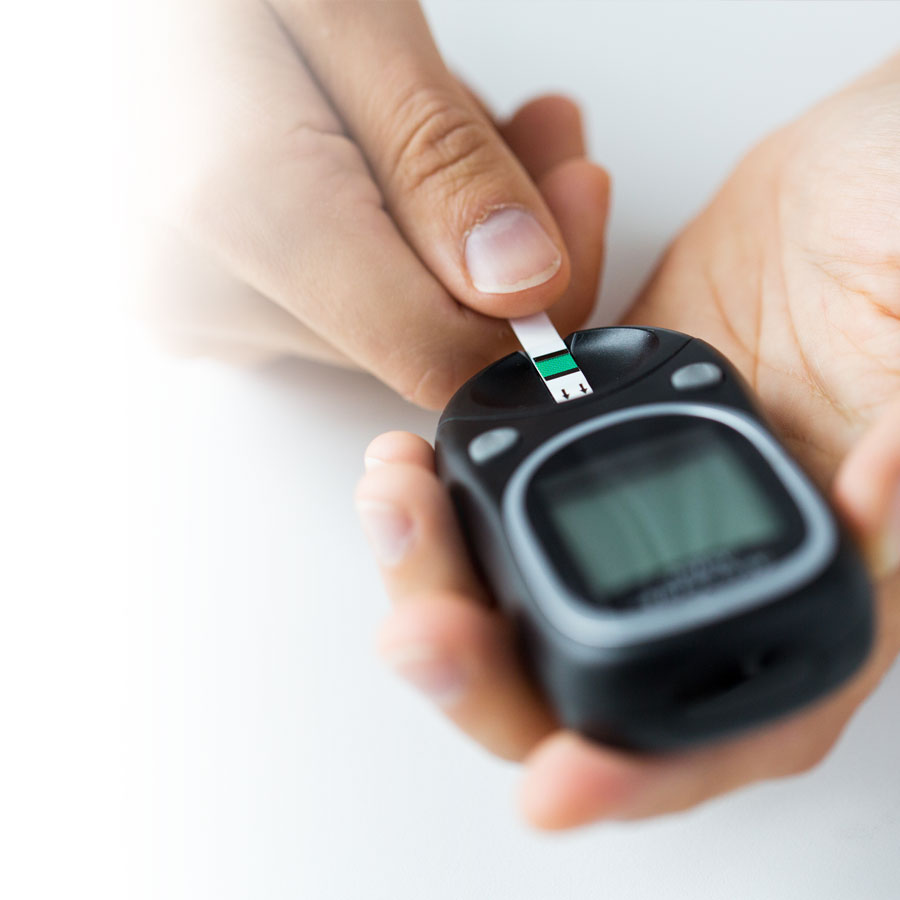Need a consultation related to the health condition discussed in this article? Schedule an appointment with your pharmacist at a time that works for you.
When you live with diabetes, you want to do everything you can to stay healthy. To do this, monitoring blood glucose levels is key.
Diabetes: a significant challenge!
When you receive a diagnosis of diabetes, it's news that sparks different reactions from one person to another. For some, it's a sign that lifestyle changes are needed. Others experience mixed emotions: a lack of understanding, a sense of injustice, fear, sadness, anger, etc. Whatever the type of reaction, this news leaves no one indifferent. It is perfectly normal to lose your bearings. The affected person must gradually accept this new reality and adapt to the changes required by the diagnosis.
Learning to live with diabetes will be easier if you see it as a challenge. Diabetes is a chronic disease that can have serious consequences. However, it can be controlled. To do this, you need to take steps to control your blood glucose levels.
How can blood glucose be controlled?
There are many ways to control blood glucose levels: dietary changes, weight loss, physical activity, oral or injectable medications, including insulin. In some cases, lifestyle changes will be sufficient to achieve optimal control, while in others, medication will be required.
The goal is to avoid both hyperglycemia (high blood sugar) and hypoglycemia (low blood sugar). To achieve optimal diabetes management, here are some steps to follow:
1. Get the facts
The more you know and understand about diabetes, the easier it will be to manage. There are many valuable resources available. Your pharmacist can help you. Visit the Diabetes Quebec website at www.diabete.qc.ca to find a wealth of useful information, as well as contact information for the Diabetes Education Centre nearest you. You can register for a comprehensive diabetes education program.
Pharmacists are knowledgeable about this health condition, so don't hesitate to consult them to learn more about diabetes and to ask any questions you may have.
2. Set clear goals
You will need to know exactly what blood glucose levels to aim for. For most people, fasting blood glucose (before a meal) is between 4.0 and 7.0 mmol/L. Postprandial blood glucose (2 hours after a meal) should be between 5.0 and 10.0 mmol/L. Ask your healthcare professional for the exact values recommended for your situation, as well as how to monitor your diabetes. They will tell you how often to monitor your blood glucose levels.
3. Monitor your blood glucose
The key to successful diabetes management is consistent blood glucose monitoring. Choose a meter that is convenient for you and that you will use to monitor your blood glucose on a daily basis, or as recommended by the healthcare professionals who are monitoring your diabetes (doctor, pharmacist, nurse). Blood glucose levels vary greatly over time, due to many factors: diet, alcohol consumption, physical activity, medication, stress, illness, etc. It is essential that you be aware of fluctuations in your blood glucose levels so that you can respond promptly and appropriately in the event of an imbalance.
4. Take action according to blood glucose trends
Identifying low or high blood glucose results on an occasional basis is good. But tracking your blood glucose trends is even better! Observing blood glucose trends over several days gives you a better overview of the situation and allows you to target certain deficiencies, such as hyperglycemia or hypoglycemia associated with specific situations or times. An analysis of blood glucose trends will allow you to respond quickly, make more informed changes and achieve better blood glucose control.
5. TEAM UP WITH YOUR PHARMACIST
Pharmacists are key allies in diabetes management. In addition to providing information, they can monitor your condition and blood glucose levels, adjust treatment based on these results, and prescribe blood tests. All of this is done in consultation, under certain conditions, and based on their professional judgment.
Don’t wait, speak to your pharmacist promptly for optimal blood glucose monitoring.

